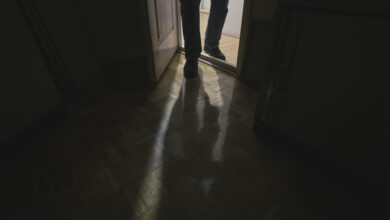Nurse makes her mark in war-torn nation
Queensland nurse Barbara McMaster has recently returned from a six-month stint in war-torn Yemen. She talks to Linda Belardi about working in a conflict zone
From the wars in Afghanistan and South Sudan to the aftermath of floods in Pakistan, Red Cross nurse Barbara McMaster has worked in some of the world’s most troubled hot spots.
In nine missions overseas she has seen communities ravaged by natural and man-made disasters.
In her latest mission, to Yemen, McMaster worked in a two-person surgical support team caring for victims of the escalating conflict.
Stationed for six months in the ancient seaport city of Aden in the south, the Queensland nurse supported local staff at six hospitals. Their patients were mostly civilians but some were members of armed groups.
“Our mandate was for the weapon-wounded but in the course of a day’s work you can’t say no to someone who has had a car accident,” McMaster says.
“We were supporting the local hospitals with technical expertise and best practice. The [Red Cross] surgeon would work alongside local surgeons and assist the surgery then I would follow up with the local nursing staff in post-operative care in the intensive care unit and on the wards.”
Yemen’s public hospitals are poorly equipped. Equipment is broken and old, and staff lack the skills to manage the complex needs of the patients.
The majority of the local nurses have had no formal training and the city’s public health infrastructure is not maintained.
McMaster worked to improve nursing practices, especially in infection control and sanitation. “Our world of disposable equipment is a far cry from Yemen,” she says.
Encouraging change in hospital practice is a slow process but big wins can be made with consistent application.
This was McMaster’s second trip to Yemen in the past year. In that time, the local nurses have begun soaking their oxygen masks in a bleach solution before reuse.
“That’s a huge win,” McMaster says. “In theatre, nursing staff have also started to scrub instruments properly and cleaners have been taught how to wipe down the theatres.”
However, hospital routines are frequently disrupted by nurses going on strike due to disputes over pay and conditions.
McMaster says staff willingness and motivation strongly influence the translation of her teachings into practice.
In the context of limited equipment, creativity and innovation are important. Lacking a hospital incinerator, McMaster set up a makeshift system to separate sharp items such as needles from the general rubbish using five-litre plastic boxes and empty soft-drink bottles as funnels.
The opportunity to introduce small but powerful changes for staff and patients drives McMaster to brave the risks of humanitarian aid work.
Security concerns are significant, and in a volatile and politically unstable country such as Yemen, staff movements are tightly controlled and there are frequent roadblock checkpoints.
“In conflict areas you are very restricted,” McMaster says. “You don’t have the freedom to go out for a walk or a drive.”
Yemen is the poorest nation in the Arab world and the south is home to an active separatist movement.
Australian Red Cross sends about 160 paid workers overseas each year with funding from the federal government’s overseas aid program, AusAID.
Email: [email protected]





